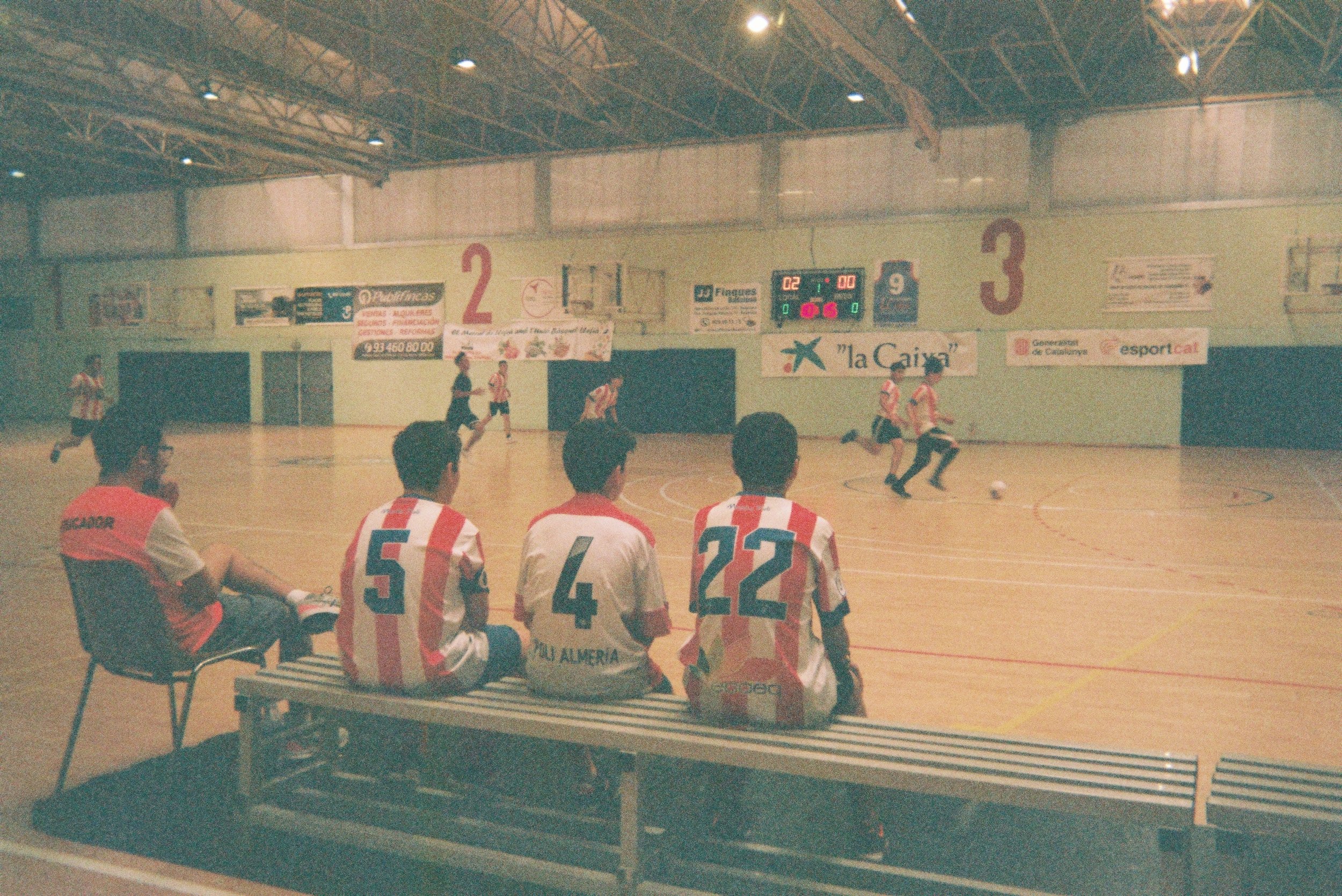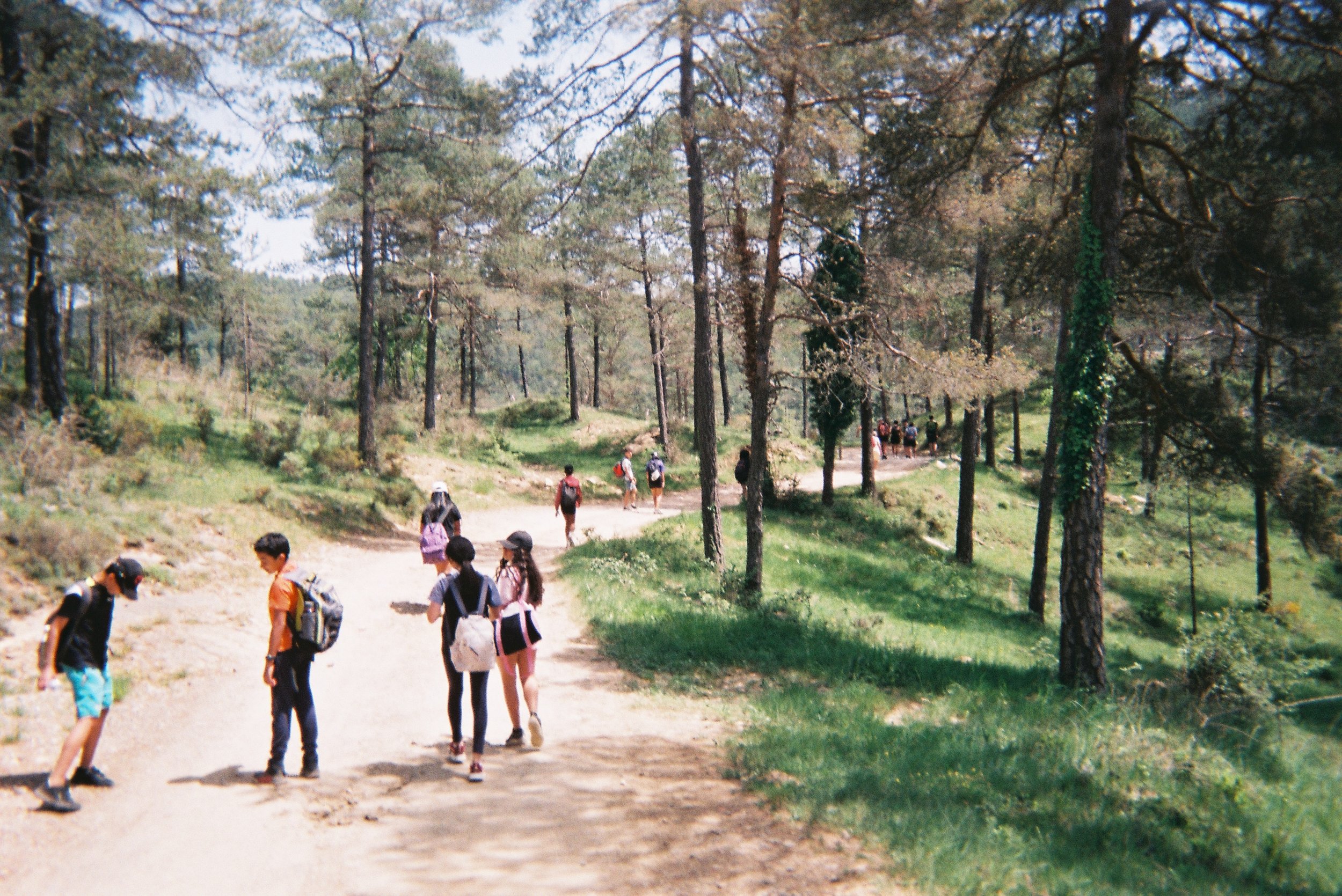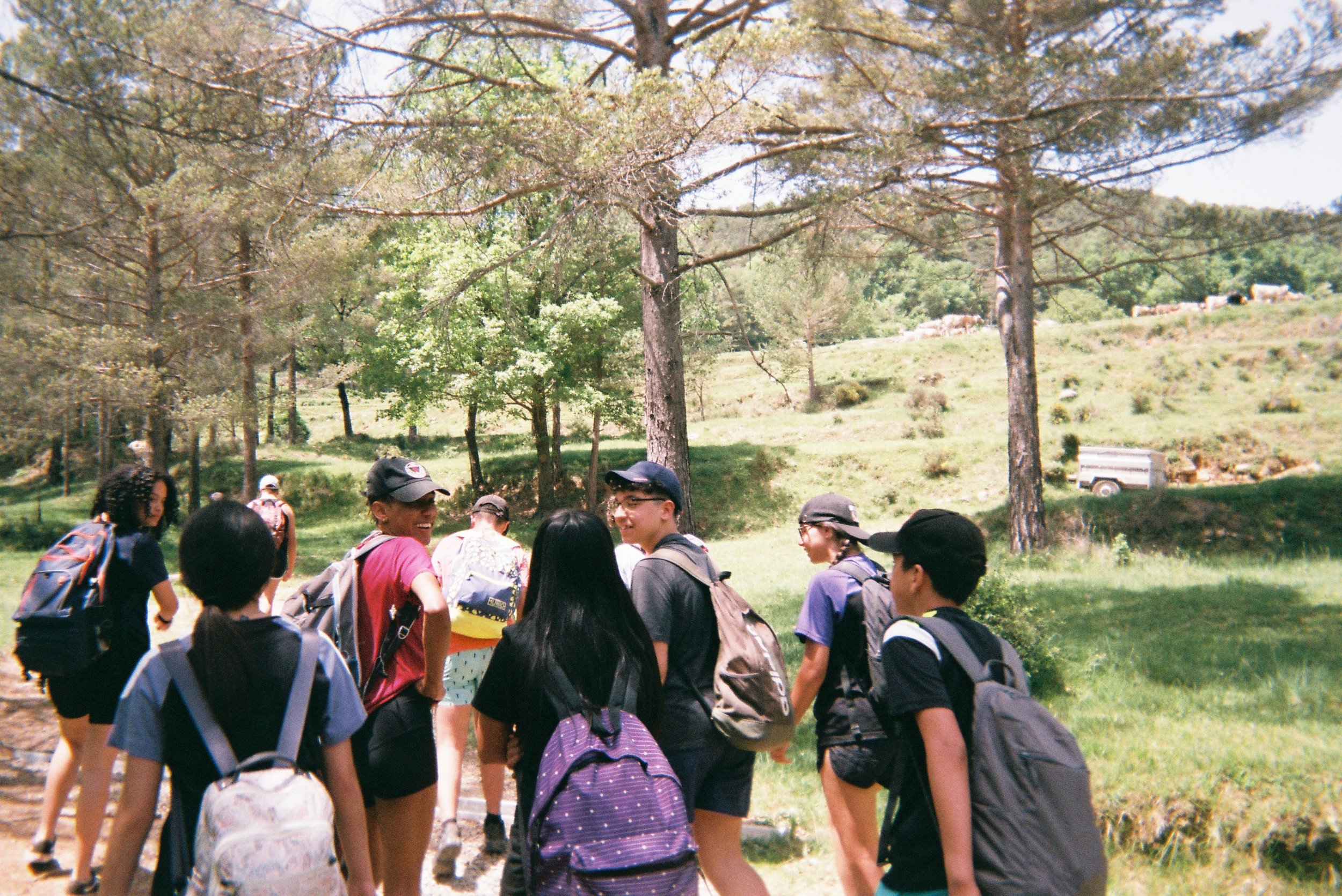Changing Minds And Lives
Melenny Huayamabe Pinargote, Spain
We have teamed up with the adidas Breaking Barriers Project to tell the stories of six coaches and leaders from sports organisations across Europe - from Spain, Netherlands, Croatia, Serbia, and Italy. The project empowers women to undertake leadership training which helps to break the barriers that girls across Europe face, giving them easier access to sport. Melenny Huayamabe Pinargote is a coach with La Rotllana Association in Badalona, Spain.
Can you introduce yourself and tell us about your sports journey?
My name is Melenny Huayamabe Pinargote, I am 24, and I was born in Portoviejo, Manabí in Ecuador, but I have been living in Badalona in Spain since I was 5. My family left their country and moved to Spain for work opportunities. I was introduced to the La Rotllana Association and the sport of korfball (a mixed-gender sport based on cooperation and non-contact) when I was 18 years old, which is a rare age to start sports and volunteering in my community.
I started as a coach of children the same year I started playing korfball, and my role as a coach was very basic then. Every year I learnt more and acquired more responsibility, and this made me realize sport is very important to me and should be for everybody. Now I am working as a coordinator of the Youth Dynamization section of La Rotllana. We run projects and activities to promote youth participation, including the adidas Breaking Barriers Project.
My sports journey began late, as I could not belong to any sports team in my childhood and adolescence. There were not many offers of sport for girls or mixed teams and my family could not pay the expensive fees. Sport was intermittent in my life. I used to practice tennis and rollerblading with my brother when we were kids. When I finally started playing mixed sport at the age of 18, I could pay for it myself because the price was affordable, and the offer of a gender mixed sport was interesting for me.
What did you try to capture with your photos? Was there a wider meaning with the photos? What do these images mean to you as a champion of the adidas Breaking Barriers Project?
I showed different projects from La Rotllana Association in Badalona, most of them with teenagers practicing the sports of football and korfball. Those projects are related to the sport but there is more behind them than just sport. We work with the football3 methodology, including non-sport activities and try to merge different groups.
I tried to capture the multicultural co-living, the existence of girls playing sport in Badalona, and the importance of the work of the Association, the coaches, and projects like this for those teenagers. We are in a city with many different nationalities, who can all live together if we put aside religions, politics, and prejudgments. For me, these photos represent a change in myself and in my surroundings, and an encouragement to continue doing my work.
You can see my team Club Korfball Badalona, with who I have shared a lot of good moments and where I learnt how to play korfball. I also showed the final of the boys’ football3 league (the most important day for the boys), a celebration at the end of ‘Spring Camp 4 Girls’ (part of the adidas Breaking Barriers Project), and the practice of a junior korfball team I had the chance to train.
There was also an excursion in nature with different participants of football and korfball projects. We brought together and had fun with 60 girls and boys that do not often go out of their neighbourhood.
Why is sport important for your community?
In my community sport is very important as a tool to work with teenagers, adults, different groups, and help them to grow up in all ways. Furthermore, sport helps people to avoid putting their eye on bad things (drugs, gambling, gangs…) It is important to have a good environment where you can meet people that could be your best friend, your partner, even your second family, where you feel belonging.
What role does sport play in your community and Spanish society?
My community is quite unique in Spanish society - we are a mix of cultures, and it has developed into a new culturally rich society. In Badalona we have people from countries like Morocco, Pakistan, India, Romania, Algeria, Colombia, Venezuela, and China. Around 140 nationalities can be found in Badalona.
There are sports like basketball and football, that are played by the majority of clubs with men’s teams and increasingly women’s teams. We are working to have more popular and economically affordable sports and activities to maximize the number of children playing sports from early ages. In my community there are some street sports like football, volleyball and cricket that bring together people.
Through sport it is easier to get closer to people and propose some new activities to do together. Multiculturalism is present in our neighbourhoods and sport is a very good way to get to know other interesting cultures.
What are the opportunities for women and girls to play sports in your community and in Spain?
Over the last few years, I have seen the increase in sports opportunities for women and girls in Spain, but I think the majority of the opportunities are given to those who are good at that specific sport. We should give the same opportunities to women and girls even if they are not the best players, but they have the power and motivation to play sport or belong to a team.
If we give sports opportunities to all women and girls, even if they are not athletes yet, we can change minds and empower people not just in sport, but also in education, in work, and the individuality of the person. Sport is a tool that allows you to discover yourself. “Because you are in sport as you are in life.”
What impact has the adidas Breaking Barriers Project had on your journey as a leader and change-maker?
Participating in the adidas Breaking Barriers Project has been unexpected and very needed. When I joined, I was just a girl who played sport and knew few things outside my environment. I have learnt a lot from sport, about myself, about the power of the change-maker. I can see there is so much work to do in my community and in other parts of the world.
It is possible to connect histories and goals between many countries. The fight for equity and inclusiveness depends on everybody. Men and everybody watching need to be aware, not only girls and women. Now I know I can contribute inside and outside of the pitch, with my family, my friends, and my team. I can always make a change.
What does sport mean to you? What ambitions do you have for the future?
For me, sport is there to enjoy. When you see a group of children playing a game and having fun, it is the same as when you see adults playing a sport they love. Both transmit good feelings. That is the power of sport. It is life changing for many people. And it has changed my life. Now I cannot conceive of not playing sport.
My ambition for the future is helping others to find their motivation and at the same time I can be a role model for newcomers to sport.
What do you think the future looks like for sport in your community and country? What do you want to change? How would you improve gender equality?
The 1992 Olympic Games in Barcelona created many buildings and places to practice sport. Thanks to this world event, sport was set up in the city and now we have very good options, despite not reaching all communities or ages.
I hope sports gain more importance and presence in primary schools and high schools over the next few years. I would like the government and institutions to give more economic support so that money does not become a barrier for anybody, especially to women and girls. There are more things to solve to support women. One barrier for women is the responsibility of motherhood, so we need more places and ideas to help them play sport.
We could be providing activities or spaces for their children where they play sport. Or we could be providing free sport for the mothers when they are already paying for sports activities for their children. We need to change our culture where women abandon their priorities or hobbies when they have children.
To learn more about the adidas Breaking Barriers Project, visit: https://www.adidas.co.uk/breakingbarriers








